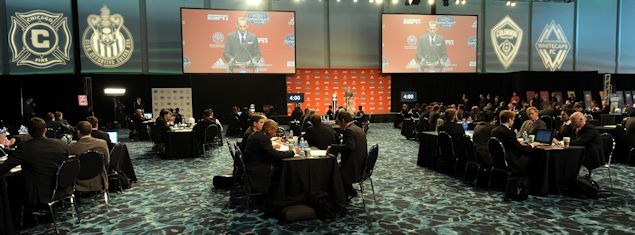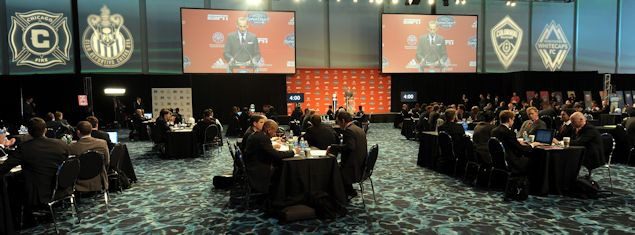Major league soccer in the United States has made tremendous strides in the past decade. The sport’s increasing popularity amongst America’s youth is a reason to rejoice for soccer fans everywhere. However, the U.S. Major League Soccer association, commonly known as the MLS, has a reputation for not being as strong as the likes of La Liga (the Spanish first division league) or the Premier League (an English soccer league).
The Paper Tiger sat down with Noah Brown ’19 and Kiran Mukherjee ’19, both of whom play on Lick’s varsity soccer team and have played on club teams outside of school. We also spoke with Jake Slaughter ’19 to discuss how American sports as a whole are different from sports in the European scene.
When asked about the general differences between sports in Europe and the United States, Slaughter pointed out the financial disparities in European soccer. “The teams in Europe with the most money are consistently the best teams,” he said. “It’s been that way for a hundred years — the same six teams for a hundred years. You don’t see that in American sports.” Slaughter thinks that this is because the American MLS uses a draft to recruit players instead of youth academies. “With a draft, traditionally the worst teams get the best players…with the idea being that eventually the strength of each team will even out. A Burnley could never get a Rashford.”
Burnley F.C. is a newly promoted side to the premier league, which isn’t given an opportunity to draft young, talented players such as Marcus Rashford, a young star at Manchester United, because there isn’t a drafting system in the European leagues.
The problem is that soccer isn’t built for drafting. Drafting works better with other sports because drafts are designed to reward the strongest, tallest, fastest, and most athletic players. Mukherjee explains, “The draft is good because it allows for better athletes to continue to be cycled into the league.”
In soccer, the players who find the most success are the players who can understand the way their team wants to play. Brown said, “The little small guys in the MLS dominate the league; arguably the best player in the MLS is five foot six.”
European clubs are more successful despite the lack of a draft because they cultivate young talent through the implementation of youth academies focused on player development in that team’s culture from a young age.
Mukherjee said that the idea behind academies is to teach players to play with a specific club. “With soccer, unlike other more linear sports, each team is gonna play differently,” he said. “For example, Tottenham Hotspur plays a high line [meaning they require their defenders to stay further up the field] and are more dependent on their full-backs driving forwards and whipping in crosses into the box. Manchester United, on the other hand, is more reliant on their wingers and attackers, in general, creating chances for themselves, and generally, play a more conservative back line.” Mukherjee continues, “The problem with having a draft for soccer is you can’t take a player out of a college level team and throw them into another soccer team. In Europe at that age, the players have already reached the age where they have played with the club for long enough to learn how the club works.”

Photo courtesy of J Hutcherson
“The American athlete is reflected in the way the MLS plays. More about speed, and physicality, and less about thinking,” said Slaughter. European soccer, while still physical, tends to put more emphasis on skill and technique. Young, talented players like Christian Pulisic are increasingly forgoing the MLS entirely, opting to join the dominant European leagues and hone their craft among technically excellent players.
The draft does have some clear benefits, most notably the mobility it offers less successful teams. It has shaped the culture of US sports leagues, pushing players to focus on athleticism.
While the MLS may never be the next Premier League or La Liga, it could be improved by a revision of its draft system. If U.S. soccer teams were able to train players to their team’s specific playing style, they would have the opportunity to develop advanced technical skill, strategy, and cohesive teamwork.
By Ezekiel Rubin-Moore ’19






